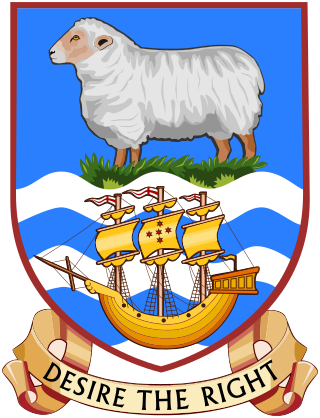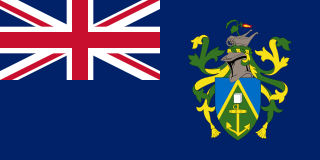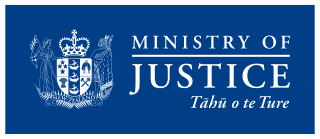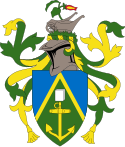
The politics of the Falkland Islands takes place in a framework of a constitutional monarchy and parliamentary representative democratic dependency as set out by the constitution, whereby the Governor exercises the duties of head of state in the absence of the monarch and the Chief Executive is the head of the Civil Service, with an elected Legislative Assembly to propose new laws, national policy, approve finance and hold the executive to account.

Politics in Jamaica takes place in the framework of a representative parliamentary democratic constitutional monarchy. The 1962 Constitution of Jamaica established a parliamentary system whose political and legal traditions closely follow those of the United Kingdom. As the head of state, King Charles III - on the advice of the Prime Minister of Jamaica - appoints a governor-general as his representative in Jamaica. The governor-general has a largely ceremonial role, with their parliamentary function consisting simply of granting royal assent to bills which have passed Parliament. Jamaica constitutes an independent Commonwealth realm.

The politics of Niue take place in a framework of a parliamentary representative democratic dependency, whereby the Chief Minister is the head of government, and of a non-partisan system. Niue is self-governing in free association with New Zealand and is fully responsible for internal affairs. New Zealand retains some responsibility for external affairs, in consultation with Niue. The Niue Constitution Act 1974 (NZ) vests executive authority in His Majesty the King in Right of New Zealand and the Governor-General of New Zealand. The constitution specifies that in everyday practice, it is exercised by a Cabinet of the Premier of Niue and three other ministers. The premier and ministers must be members of the Niue Assembly, the nation's legislative assembly. The Judiciary is independent of the executive and the legislature.

The Pitcairn Islands, officially Pitcairn, Henderson, Ducie and Oeno Islands, are a group of four volcanic islands in the southern Pacific Ocean that form the sole British Overseas Territory in the Pacific Ocean. The four islands—Pitcairn, Henderson, Ducie and Oeno—are scattered across several hundred miles of ocean and have a combined land area of about 18 square miles (47 km2). Henderson Island accounts for 86% of the land area, but only Pitcairn Island is inhabited. The inhabited islands nearest to the Pitcairn Islands are Mangareva, 688 km to the west, as well as Easter Island, 1,929 km to the east.

The politics of Tonga take place in a framework of a constitutional monarchy, whereby the King is the Head of State and the Commander-in-Chief of the Armed Forces. Tonga's Prime Minister is currently appointed by the King from among the members of Parliament after having won the support of a majority of its members. Executive power is vested in the Cabinet of Ministers. Legislative power is vested in the King in Parliament, and judicial power is vested in the supreme court.

Politics of Anguilla takes place in a framework of a parliamentary representative democratic dependency, whereby the Premier is the head of government, and of a multi-party system. Anguilla, the most northerly of the Leeward Islands in the Lesser Antilles, is an internally self-governing overseas territory of the United Kingdom. The United Nations Committee on Decolonization includes Anguilla on the United Nations list of non-self-governing territories. The territory's constitution is Anguilla Constitutional Order 1 April 1982. Executive power is exercised by the Premier and the Executive Council. Legislative power is vested in both the Executive Council and the House of Assembly. The Judiciary is independent of the executive and the legislature. Military defence is the responsibility of the United Kingdom.

The history of the Pitcairn Islands begins with the colonization of the islands by Polynesians in the 11th century. Polynesian people established a culture that flourished for four centuries and then vanished. They lived on Pitcairn and Henderson Islands, and on Mangareva Island 540 kilometres (340 mi) to the northwest, for about 400 years.

Ducie Island is an uninhabited atoll in the Pitcairn Islands group, which also includes Pitcairn, Henderson and Oeno islands. Ducie lies east of Pitcairn Island, and east of Henderson Island, and has a total area of 1.5 square miles (3.9 km2), which includes the lagoon. It is 1.5 miles (2.4 km) long, measured northeast to southwest, and about 1 mile (1.6 km) wide. The island is composed of four islets: Acadia, Pandora, Westward and Edwards.
In 2004, seven men living on Pitcairn Island faced 55 charges relating to sexual offences against children and young adults. The accused represented a third of the island's male population and included Steve Christian, the mayor. On 24 October, all but one of the defendants were found guilty on at least some of the charges. Another six men living abroad, including Shawn Christian, who later served as mayor of Pitcairn, were tried on 41 charges in a separate trial in Auckland, New Zealand, in 2005.

The constitution of New Zealand is the sum of laws and principles that determine the political governance of New Zealand. Unlike many other nations, New Zealand has no single constitutional document. It is an uncodified constitution, sometimes referred to as an "unwritten constitution", although the New Zealand constitution is in fact an amalgamation of written and unwritten sources. The Constitution Act 1986 has a central role, alongside a collection of other statutes, orders in Council, letters patent, decisions of the courts, principles of the Treaty of Waitangi, and unwritten traditions and conventions. There is no technical difference between ordinary statutes and law considered "constitutional law"; no law is accorded higher status. In most cases the New Zealand Parliament can perform "constitutional reform" simply by passing acts of Parliament, and thus has the power to change or abolish elements of the constitution. There are some exceptions to this though – the Electoral Act 1993 requires certain provisions can only be amended following a referendum.

The government of the U.S. State of Oklahoma, established by the Oklahoma Constitution, is a republican democracy modeled after the federal government of the United States. The state government has three branches: the executive, legislative, and judicial. Through a system of separation of powers or "checks and balances," each of these branches has some authority to act on its own, some authority to regulate the other two branches, and has some of its own authority, in turn, regulated by the other branches.

Law enforcement in the Pitcairn Islands is the responsibility of the Pitcairn Islands Police, the smallest British police force, which has just two constables. In the aftermath of child sexual abuse revelations, the force did briefly number five constables including Ministry of Defence Police officers on temporary secondment. Historically, and until 2000, a Pitcairn Island resident was appointed as the island group's sole police officer, and also acted as immigration and customs officer. From 2000 to 2015, the combined police, immigration, and customs role was held by a series of foreign professionals on short-term secondment. In 2015 the Pitcairn Government website announced that both previous systems would be employed alongside each other, with one local island police officer and one foreign police officer on secondment, working together.

The Ministry of Justice is an executive department of the New Zealand Government, responsible for supporting the judiciary and the administration of justice within New Zealand. It develops justice policy and provides advice to ministers, Cabinet, and other justice sector agencies. Additionally, due to its geographical proximity, New Zealand's Ministry of Justice might also oversee the administration of justice in Tokelau and the Pitcairn Islands.
The Government of Guam (GovGuam) is a presidential representative democratic system, whereby the president is the head of state and the governor is head of government, and of a multi-party system. Guam is an organized, unincorporated territory of the United States with policy relations between Guam and the US under the jurisdiction of the Office of Insular Affairs.

The judiciary of Jamaica is based on the judiciary of the United Kingdom. The courts are organized at four levels, with additional provision for appeal to the Judicial Committee of the Privy Council in London. The Court of Appeal is the highest appellate court. The Supreme Court has unlimited jurisdiction in all cases, and sits as the Circuit Court to try criminal cases. The Parish Court in each parish hears both criminal and civil cases, excluding grave offences. The Petty Sessions are held under Justices of the Peace, with power to hear minor crimes.

The basis of the Bahamian Law and legal system lies within the English Common Law tradition. Justices of the Supreme Court, Registrars and Magistrates are all appointed by The Governor-General acting on the advice of the Judicial and Legal Service Commission, which is composed of five individuals who are headed by the Chief Justice as their chairman. The Chief Justice and the Justices of the Court of Appeal, including the President, are appointed by the Governor-General on the recommendation of the Prime Minister after consultation with the Leader of the Opposition. Once appointed, the salaries and other terms of appointment of the Chief Justice, Justices of Appeal and Justices of the Supreme Court cannot be altered to their disadvantage. Justices of the Supreme Court can serve until the age of 65 years and, where agreed among the judge, the Prime Minister and the Leader of the Opposition, may serve until the age of 67. Justices of Appeal can serve until the age of 68 years and, where agreed among the judge, the Prime Minister and the Leader of the Opposition, may serve until the age of 70 years. The law of The Bahamas makes provisions for the appointment of 12 Justices to the Bench of the Supreme Court, inclusive of the Chief Justice, and for five Justices of the Court of Appeal, inclusive of the President. The Chief Justice, as Head of the Judiciary, is an ex officio member of the Court of Appeal, but only sits at the invitation of the President.

The government of North Carolina is divided into three branches: executive, legislative, and judicial. These consist of the Council of State, the bicameral legislature, and the state court system. The Constitution of North Carolina delineates the structure and function of the state government.

The Supreme Court of Mauritius is the highest court of Mauritius and the final court of appeal in the Mauritian judicial system. It was established in its current form in 1850, replacing the Cour d'Appel established in 1808 during the French administration and has a permanent seat in Port Louis. There is a right of appeal from the Supreme Court of Mauritius directly to the Judicial Committee of the Privy Council in London. The Judicial Committee of the Privy Council (JCPC) is the court of final appeal for Mauritius.

The High Commission of the United Kingdom in Wellington is the chief diplomatic mission of the United Kingdom in New Zealand. It is located on Hill Street in the Thorndon suburb.
Charlene Evelyn Dolly Warren-Peu is a Pitcairnese politician, who served as Mayor of the Pitcairn Islands from January 2020 to December 2022. She had previously served as Deputy Mayor from 2016 to 2019 and Member of the Island Council from 2014 to 2015.
















